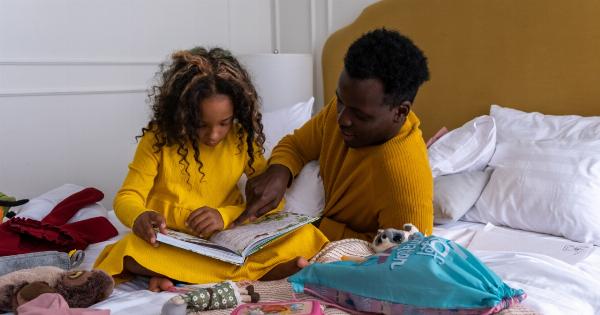As a parent, talking about sex education with your children can be a daunting task.
However, it is a necessary conversation to have in order to provide them with the knowledge and resources they need to make informed decisions as they enter adolescence and adulthood. By having open and honest conversations, you can help your children navigate the complex world of relationships, sexuality, and sexual health. Here are some tips to help you get started:.
1. Start Early
It’s important to start talking to your children about sex and sexuality early on, so that you can create a foundation of openness and trust.
This can be as simple as using the correct anatomical terms for body parts, or explaining where babies come from in an age-appropriate way.
2. Be Honest and Straightforward
When talking to your children about sex education, it’s important to be honest and straightforward. Avoid using euphemisms or sugarcoating the facts, as this can create confusion and misconceptions.
Use age-appropriate language and answer their questions as honestly as possible.
3. Listen to Your Child
Be sure to listen to your child’s concerns and questions about sex education, and validate their feelings and experiences. If they feel comfortable coming to you with questions, it can help build trust and strengthen your relationship.
4. Use Resources
There are many resources available to help you talk to your children about sex education, including books, websites, and educational materials. These can be a great tool to help you provide accurate and comprehensive information to your children.
5. Discuss Consent
It’s important to discuss consent with your children early on, so they understand the importance of respecting others and having their own boundaries respected.
Teach them that they have the right to say “no,” and that they should never feel pressured into doing something they don’t want to do.
6. Talk About Sexual Health
In addition to discussing sex and relationships, it’s important to talk about sexual health with your children. This includes topics such as contraception, STIs, and HIV/AIDS.
Provide them with accurate information and resources, and teach them how to protect themselves and their partners.
7. Continually Check In
Sometimes, children may have questions or concerns about sex education long after the initial conversation. It’s important to continually check in with your child and encourage open communication.
Let them know that they can come to you at any time with questions or concerns, and that you will always be there to support them.
8. Handle Embarrassment
Talking about sex education can be embarrassing, both for you and your child. Try not to get flustered or embarrassed yourself, as this can make the conversation more difficult for your child.
Remember that it’s normal to feel embarrassed, but that the conversation is important nonetheless.
9. Be Proactive
Don’t wait for your child to come to you with questions about sex education. Take a proactive approach by bringing up the topic yourself.
This can help create a safe space for your child to ask questions and learn more about sexuality and sexual health.
10. Normalize the Conversation
Finally, try to normalize the conversation about sex education as much as possible.
Let your child know that sex and sexuality are natural and normal parts of life, and that you are there to provide them with the information and support they need to make informed decisions about their sexual health.





























